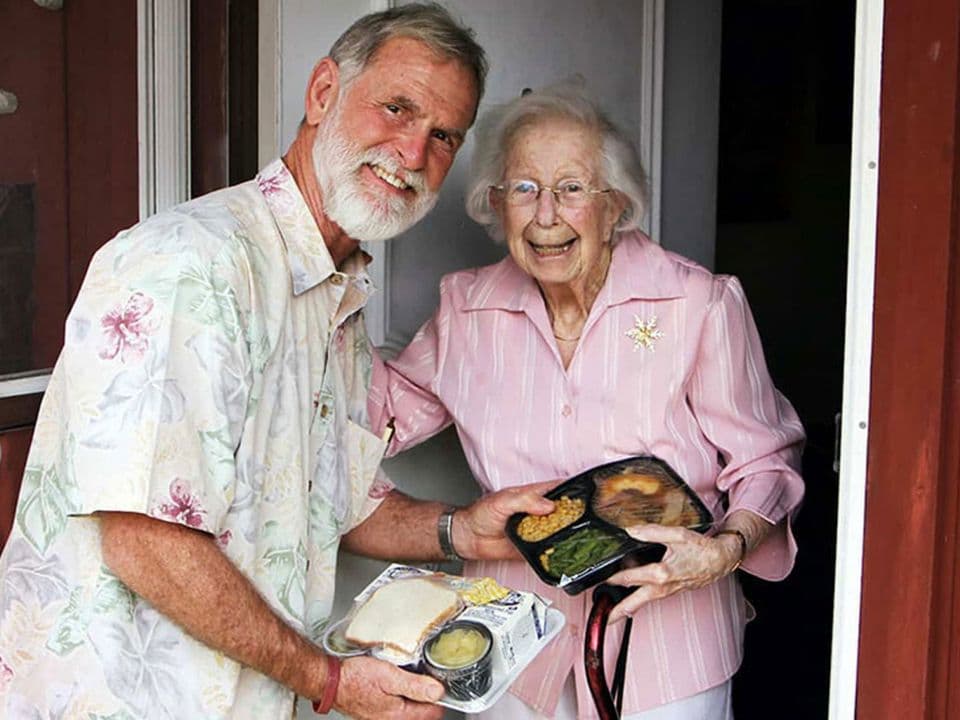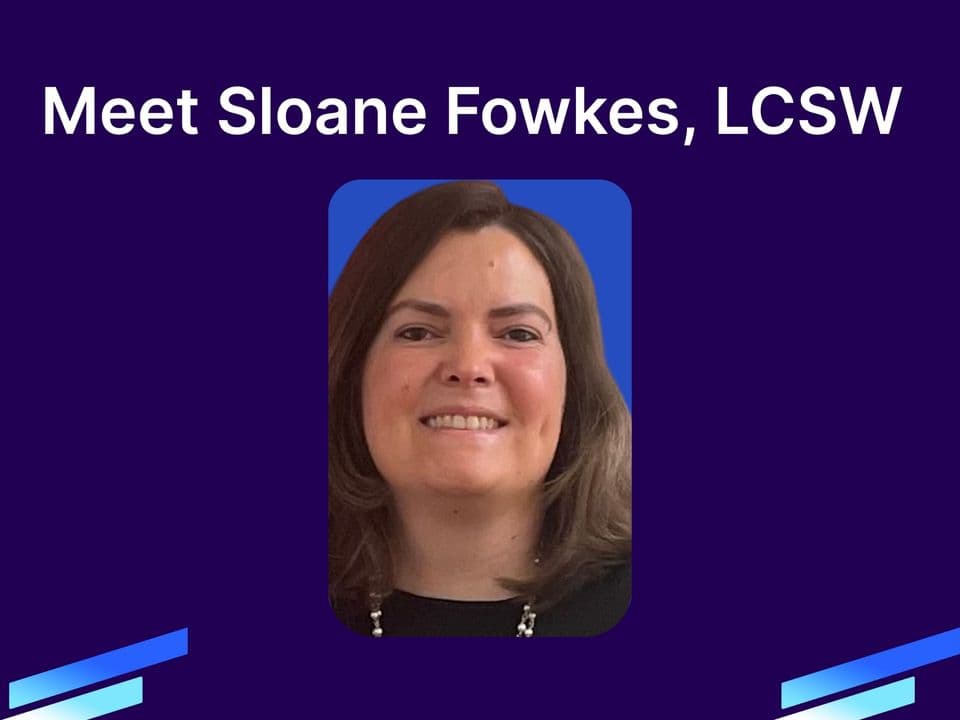Your questions on Alzheimer's prevention answered, with Dr. Amanda Smith
Written by
Maintaining brain health is possible at any age, and simple lifestyle changes combined with early diagnosis can play a powerful role in preventing memory decline. To better understand how seniors and caregivers can protect memory and stay proactive, I spoke with Dr. Amanda Smith, a geriatric psychiatrist and the Director of Clinical Research at the University of South Florida (USF) Health Byrd Alzheimer's Institute. In our conversation, Dr. Smith shares her path into geriatrics, her research on Alzheimer’s prevention, and practical tips on exercise, nutrition, sleep, and early screening that can make a real difference for brain health.
Tell us about your background and how you chose your specialty.
I grew up with very active grandparents. They were social, owned a nursing home, and showed me what normal aging should be. When I was in med school, I was hanging out with my grandparents, watching the Super Bowl with their friends. They were fun, hilarious, and cool, and so that's what I knew as normal.
During medical school, I had an experience that really sticks out. I was assigned to interview a woman with chest pain in the ER who came from an assisted living facility. Then, during rounds, I presented her case, and the attending physician laughed, saying I must have gone into the wrong room because he couldn’t understand her. The truth was the paramedics hadn’t brought her dentures, but she was clearly able to convey what happened if you just took the time to listen. It infuriated me that she was dismissed so easily. This really drove home the fact that I need to protect these people and go into geriatrics to make sure that this doesn’t happen regularly. That moment pushed me toward geriatrics. Later, I specialized in memory and Alzheimer’s care when I worked with a mentor at USF, Dr. Eric Pfeiffer, and I really loved the field and the work.
How do your clinical practice and research fit together?
They’re very connected. My training is in geriatric psychiatry with a focus on memory disorders. At USF, I worked with Dr. Pfeiffer, who founded the Suncoast Gerontology Center. Over time, Alzheimer’s disease became a big focus because that’s where the research funding was. Working with him, I got exposed to both the clinical practice of treating Alzheimer's patients as well as clinical trials. When he retired, I became the director.
Our clinic provides regular care, but we also run clinical trials. We recruit from our clinical population for clinical trials. Some people think you can only come to us if you want to participate in research, but that’s not true: we’re a regular doctor’s office. We take care of people at all stages of memory loss, and only a very small percentage of people either are interested in or qualify for research studies. We see research as another facet of clinical treatment. When we have people who are stable on current treatments and interested in participating in research, we can recruit them into trials to see if these new treatments work as well as or better than what's already out there.
What new treatments or prevention studies are you involved in?
We’re part of the Alzheimer’s Disease Neuroimaging Initiative, which looks at brain imaging, biomarkers, and cognitive changes over time. There are new blood tests and imaging tests where we can really diagnose Alzheimer's definitively. We are also involved in a prevention trial with people who don’t have memory problems, but do have biomarkers showing Alzheimer’s is building up in their brains. It's testing giving them one of the FDA-approved drugs to see if they progress to mild cognitive impairment or dementia from Alzheimer's disease, or if removing the amyloid early enough will prevent or delay the onset of symptoms.
What do you wish more seniors knew about Alzheimer’s disease and dementia?
One of the most common questions I get is, “What’s the difference between Alzheimer’s and dementia?” There’s a misconception that Alzheimer’s is just a late stage of dementia, but that’s not true. Dementia is a general term for changes in memory and function. Alzheimer’s is by far the most common cause of dementia, but you can also have dementia from other things, such as strokes, Parkinson’s, or frontotemporal disease. Alzheimer’s is one of the specific causes of memory loss that people usually associate with dementia.
What memory problems should older adults watch out for?
Forgetting or mixing up appointments regularly, missing bills to the point of utilities being shut off, or constantly misplacing the same items are red flags. Struggling often with words or names you should know is another issue. Forgetting an entire event altogether—not just certain details, but the fact it happened—is not normal. Occasional forgetfulness is common, but when it’s consistent, that’s a concern.
What do people often misunderstand about dementia and Alzheimer’s?
The biggest misconception is that memory loss is just a normal part of aging. We all occasionally forget a word or misplace something, but if it’s happening regularly, that’s not normal.
The other misconception is that there’s not a lot we can do. That’s not true anymore; there’s a lot we can do. When I started in this field, you could only diagnose Alzheimer’s at autopsy. Now, we have PET scan tracers that bind to the amyloid plaque, the hallmark of Alzheimer's disease. We now have blood tests that correlate directly with the amount of amyloid in the brain.
Early diagnosis is important because we now have treatments that can target and remove that plaque from the brain, potentially shifting the degree of their decline by like 30 to 40%. Lifestyle changes can also dramatically influence the trajectory of Alzheimer's disease. Early diagnosis also gives people and their families the tools they need as the disease progresses, and time to prepare and get support in place.
What resources are most helpful for people with Alzheimer’s disease and their caregivers?
One of the most important things is realizing you’re not alone. There’s a large network of support available. Not every provider works this way, but I see my role as one of shared decision-making. I provide information and options, and I help patients choose what they want. Having educational tools helps patients and families navigate decisions.
The rest has to do with supporting them at different stages: helping them understand what to expect, helping them understand how their sleep and their nutrition can impact their course. For caregivers, helping them find a support network. In-person groups, online groups, or podcasts are important.
Why are support groups valuable for caregivers of people with Alzheimer’s?
Many people hesitate to join support groups. They may feel too busy, too private, or too overwhelmed to hear others’ stories. That’s okay, there’s a variety out there. Online support, chat groups, or specialized groups for younger caregivers all exist now.
The wisdom that only comes from other caregivers is irreplaceable. I can tell you what other people have told me, but I have not lived through it. To hear things from the people who experience them can have a huge impact. A single piece of advice from another caregiver can change someone’s life, whether it’s a tip that helps calm down a loved one or reduce a behavior issue. Sharing those little, intangible things that only other caregivers understand can make a really big difference.
What are the best ways to prevent Alzheimer’s or dementia?
Number one, engage in regular physical activity. Exercise increases blood flow and helps bring oxygen to the brain and remove toxins.
Challenge yourself mentally. If you read, do Sudoku, or the daily crossword puzzle, that’s great. But it’s even better if you mix it up. Try to learn a new instrument, or try to pick up a new language, or do things that involve learning rather than just doing.
Sleep is another key factor. Research shows that clearing toxins in the brain occurs during different stages of sleep. It’s important to get good, restful sleep. A lot of times, as we get older, sleep is less restful. We have to go to the bathroom in the middle of the night. We fall asleep later. We get up earlier. It's harder, but if you can get good quality sleep by reducing noise and intrusions, getting uninterrupted rest is crucial for cognitive health.
A healthy diet also helps. Consider the Mediterranean diet, eat lots of colorful fruits and vegetables, and stay hydrated.
Keep active social and family connections. Loneliness and isolation can contribute to cognitive decline for a variety of reasons because it means you're less active and not conversing as much. Try to stay engaged with people.
Try to control things like your blood pressure, your blood sugars, especially if you're diabetic. The earlier in life that you can be compliant and rigid about these things, the better it is for your cognitive health later on.
Do whatever you can to reduce stress. Chronically elevated cortisol levels, which are a result of stress, have negative cognitive consequences. You can't necessarily change your situational stressors, but you can change the way that you handle them, either through getting help and therapy, through meditation, or through mindfulness.
Drinking alcohol, just in moderation, is another one. If you smoke, quitting can also be very important, because smoking reduces blood flow and constricts blood vessels.
What tips do you have to help people with cognitive impairment stick to healthy routines?
It can feel overwhelming. You might be wondering, “Where do I even start?” The good news is that lifestyle changes can benefit cognitive health. The recent U.S. POINTER study showed that people who increased exercise frequency, shifted to a more Mediterranean-type diet, and engaged in cognitive training improved over two years. Both the supervised group and the group that did it on their own saw improvements in cognitive health. That’s huge, because in my office, I can’t make you better unless there’s a reversible cause, but lifestyle changes can.
I encourage people to start by just picking one of these areas. What are you the worst at? Focus on that, rather than trying to do all of them at once, since that can feel daunting. If I had to say pick one, I would say pick exercise because that’s the best. Independently, it's been shown to have a massive benefit. But once you start doing one of them, the others sort of fall into place like dominoes.
What final advice would you give seniors about protecting their memory?
I want people to know they have more control than they realize. Alzheimer’s, like cancer or other illnesses, can’t always be prevented. Some things put you at higher or lower risk, but there's a lot of control. You can take over how your journey plays out. In the past, it was sort of like we slapped a diagnosis on you and were like, good luck. Now we really understand that there's so much more that can be done. By getting in early, by changing habits, by sharing decision-making, and by participating in research, people can get treatment and live very full, functional lives while carrying a diagnosis of Alzheimer's disease.
More from Bold
Bold’s Move for Good Challenge
Introducing Bold's Move for Good Challenge: Take 5 classes in November and we'll donate to Meals on Wheels America.
Meet Sloane Fowkes, LCSW
I am a Licensed Clinical Social Worker with extensive experience working with the geriatric population. I use a trauma-informed and client-centered approach when working with clients on their healing journey. What to expect in our sessions together W
Better sleep for seniors: 8 simple habits to improve sleep quality
Discover 8 simple habits to improve sleep for seniors. Learn why sleep is important for older adults, how aging affects rest, and practical tips to boost sleep quality, brain health, and overall well-being.



